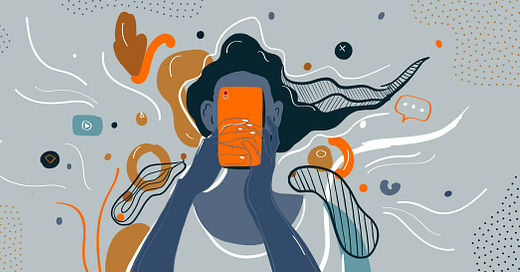Unplugged Intelligence: Reclaiming Mental Clarity in a Distracted World
Break free from digital overload and learn how to protect your focus, creativity, and cognitive resilience.
In this issue:
The cognitive cost of constant connectivity.
How digital detox boosts executive function and memory.
Practical strategies to create focus zones and tech-free time.
Welcome to this week’s edition of Applied Neurogenesis! In today’s always-on culture, executives and leaders face constant digital noise—emails, notifications, and endless Zoom calls. But did you know that excessive screen time rewires your brain for shorter attention spans, increased stress, and cognitive fatigue?
A strategic digital detox can restore focus, enhance decision-making, and improve mental resilience. In this issue, we’ll explore how digital overload affects the brain and practical ways to reclaim your cognitive edge.
How Digital Overload Affects Your Brain
1. Shortens Attention Span and Reduces Deep Work Capacity
The constant influx of emails, texts, and social media fragments attention, making deep, strategic thinking harder. Research shows that excessive screen time rewires the prefrontal cortex, making it more difficult to sustain focus.
Quick Tip: Use the “20-Second Rule”—before checking notifications, count to 20. This simple pause reduces impulsive screen use.
2. Increases Cortisol and Mental Fatigue
Constant digital stimulation keeps the brain in a heightened state of alertness, leading to higher cortisol levels and faster burnout. Executives often experience decision fatigue due to excessive screen time.
Quick Tip: Set a 15-minute “no-screen” break every 90 minutes to allow your brain to reset and process information more effectively.
3. Disrupts Sleep and Reduces Cognitive Recovery
Blue light from screens suppresses melatonin production, delaying sleep onset and reducing the quality of deep, restorative sleep—essential for memory and problem-solving.
Quick Tip: Establish a 30-minute digital sunset—turn off screens at least half an hour before bed to allow your brain to naturally wind down.
Innovations to Watch
Tools to help executives manage screen time and improve cognitive clarity:
Opal App: A screen-time management tool that blocks distractions and helps build healthier tech habits.
Remarkable 2 Tablet: A distraction-free e-ink device designed for deep work and note-taking.
F.lux: A software that adjusts your screen’s color temperature to reduce blue light exposure in the evening.
Success Story/Case Study
This week’s success story is Brian, a 52-year-old tech executive who found himself mentally drained by nonstop digital input. He implemented a “no-phone first-hour” rule in the morning, replaced late-night scrolling with reading, and set email-checking blocks instead of reacting to every notification.
Within a few weeks, Brian reported better focus, less stress, and more presence in leadership meetings. “I finally feel in control of my attention again,” he says.
Community Corner
This week’s top question comes from Lisa:
“How can I reduce screen time without missing important work updates?”
Great question, Lisa! Try batching digital tasks—check emails and messages at set times (e.g., 9 AM, 1 PM, and 5 PM) instead of constantly reacting to notifications. You’ll process information more efficiently without the mental drain of multitasking.
Do you have a digital detox strategy that works for you? Share it with the Over51 community!
Your brain wasn’t designed for constant digital input. By implementing small but strategic digital detox habits, you can enhance focus, decision-making, and overall mental resilience.
Ready to take control of your attention? Subscribe to Applied Neurogenesis for more science-backed strategies on optimizing brain function in a hyperconnected world.








